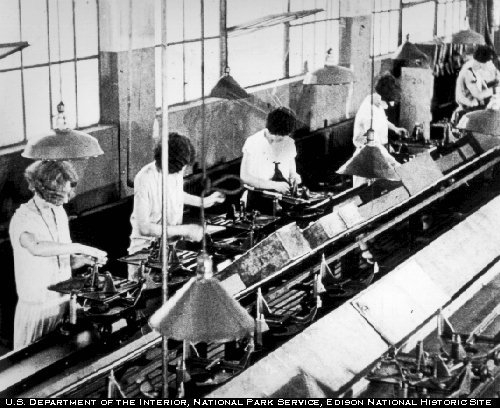A common refrain you’ll hear in networking/job interviews is someone telling you that one of the best parts of their job — “and of course, also one of the worst (laughter)” — is that every day is something different. I heard this twice on a job interview earlier this week (50 percent of interviewers). Personally, I like that attitude/approach/ideology: in my mind, coming in and doing the exact same thing every day (traditionally associated with the assembly line) would be tough. I like the notion of “baseline set of responsibilities, with challenges and needs adjusting each day.” I’d assume most jobs, even assembly line jobs, could ultimately be classified in this way: after all, do you really ever know what your day holds when it begins? No. You have ideas and frameworks and timelines and meetings, sure — but do you know that something won’t happen to change/adjust that plan? You don’t.
I was thinking about it a little more over the past few days — ultimately, asking the question to individuals is going to yield a contextual response based on their own preferences and background (just like I gave one above). But if you think about it at the broadest level, which type of organization would be better — one that has a lot of room to take on different challenges (“each day is different”) or one where the responsibilities are more narrow until you get promoted (“each day is essentially the same”)?
I have no actual answer to the question — it’s a type of question that most people would only take at the individual level and not the group level — but I think it’s kind of interesting in a few ways. First of all, the way we hire is typically based on that job and those responsibilities. It’s not usually based on the idea of “confronting something different every day” — if it was, we’d be screening for people’s calmness under pressure, or time management skills, or deadline-context, or whatever else we’re using to define someone who can handle each day being different. But the sheer concept of the word “different” when used to describe workplaces has a positive connotation: think about “making a difference” or even how people generally react when told they have “different, newer responsibilities” (admittedly, some do cringe). If you Google terms like “job is different everyday,” most of the hits are positive: they’re about getting a career you really love, or something like that. It seems people value this “each experience is different,” and yet, that’s not really the focus of most of our hiring models. Odd.
The other thing is this: businesses are primarily focused on quarterly objectives — i.e. short, 90-day turnarounds. Within those 90 days, there will be a great deal of complexity relative to the field of work — hence, “doing something different each day.” But wouldn’t it behoove a manager to set up a job in such a way that it’s essentially similar each day? In this way, the employee masters that job — because repetition/practice is a key to mastery, or so everything ever written has seemingly taught us — and that makes the company better (the bottom line), even if it’s at the expense of keeping the employee somewhat stifled.
Maybe this whole discourse is about “needs of the organization” vs. “needs of the individual” and I just masked it in a hard-to-answer question; that’s probably what actually happened here. But it’s interesting to think about — would an organization be better served with a lot of ambiguity and shifting assignments/roles, or better served with a lot more rote job functions and strict silos around who handles what?
Ideas: feel free to leave ’em in the comments.
